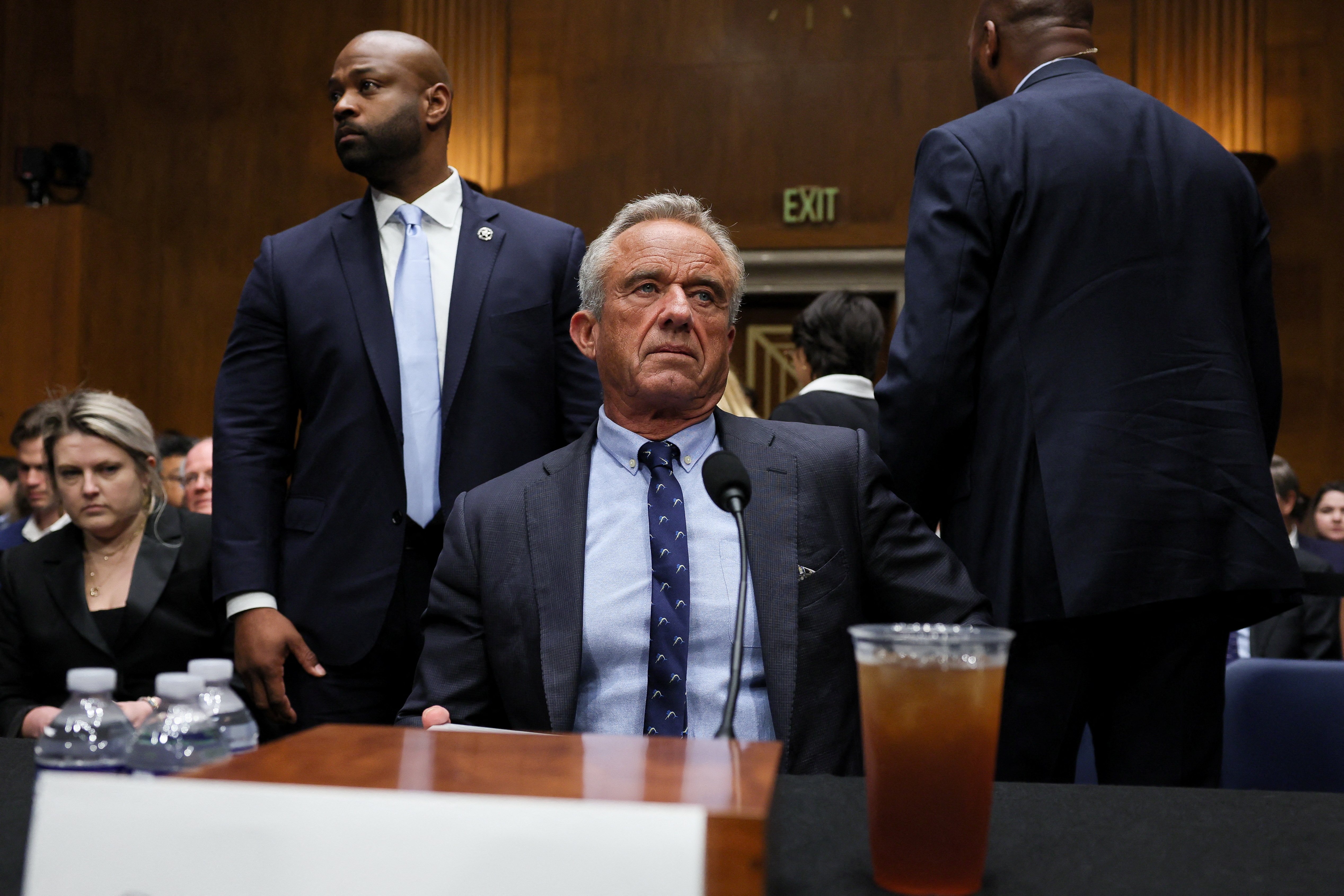3 min read
US Health Secretary Kennedy guts vaccine advisory committee
 Merit Street Media
|
Jun 10, 2025
Merit Street Media
|
Jun 10, 2025

WASHINGTON - Health Secretary Robert F. Kennedy Jr. has fired all 17 members of a U.S. Centers for Disease Control and Prevention panel of vaccine experts and is in the process of replacing them, his department said on Monday, drawing protest from many vaccine scientists.
The move is the most far-reaching in a series of actions by Kennedy, a long-time vaccine skeptic, to reshape U.S. regulation of vaccines, food and medicine. Scientists and experts said the changes to the vaccine panel, which recommends how vaccines are used and by whom, would undermine public confidence in health agencies.
Kennedy promised the move would raise public confidence.
"Today we are prioritizing the restoration of public trust above any specific pro- or anti-vaccine agenda," Kennedy said in a statement from the Department of Health and Human Services.
Kennedy has for years sown doubt about the safety and efficacy of vaccines, but he pledged to maintain the country's existing vaccine standards to secure his appointment in President Donald Trump's administration.
The Food and Drug Administration, which is overseen by Kennedy's department, has approved a number of vaccines during his tenure despite concerns over his stances. Even so, at least one senior Republican member of Congress expressed doubts about the changes in the panel.
Kennedy said the Advisory Committee on Immunization Practices is rife with conflicts and has never turned down a vaccine, even though the decision to approve vaccines rests with the U.S. Food and Drug Administration. The CDC panel provides guidance to the CDC on which groups of people would most benefit from an already-approved vaccine.
"That's a tragedy," said former FDA Chief Scientist Jesse Goodman. "This is a highly professional group of scientists and physicians and others... It's the kind of political meddling that will reduce confidence rather than increase confidence."
The Pharmaceutical Research and Manufacturers of America called Kennedy's action concerning for public health.
"Upending the ACIP membership increases uncertainty and vaccine skepticism, undermining the health gains achieved through vaccination," the industry body said in a statement late on Monday.
Shares of vaccine makers Moderna and U.S.-listed shares of BioNTech fell more than 1%, while Pfizer was down marginally in extended trading on Monday.
Kennedy said most panel members receive funding from drugmakers although members are required to declare any potential or perceived conflicts of interest that arise in the course of their tenure and any relevant business interests, positions of authority or other connections with organizations relevant to the committee's work.
Kennedy and HHS provided no specific evidence of industry conflicts of interest among departing ACIP members. The CDC's web page for conflicts of interest, last updated in March, showed that one current member had recused herself from votes on a handful of vaccines because she had worked on clinical trials for their manufacturers.
BIDEN APPOINTEES
All 17 ACIP members were appointed under former President Joe Biden's administration, including 13 in 2024, HHS said. Without their removal, Trump's administration would not have been able to choose a majority of the committee until 2028.
"This is not a political committee, it's never been partisan," said Dorit Reiss, a vaccine law expert at UC Law San Francisco. "It's an expert committee. Presidents have never been involved in ACIP membership."
The decision drew criticism from Democrats in Congress, and one key Republican expressed concern.
"Of course, now the fear is that the ACIP will be filled up with people who know nothing about vaccines except suspicion," said Republican U.S. Senator Bill Cassidy in a post on X. "I've just spoken with Secretary Kennedy, and I'll continue to talk with him to ensure this is not the case."
Cassidy, a doctor from Louisiana who had expressed wariness about Kennedy's anti-vaccine views before clearing the path for him to become the nation's top health official, said at the time he had received assurances Kennedy would protect existing vaccination programs.
The CDC panel will convene its next meeting June 25-27 at CDC headquarters in Atlanta, the department said.
Vetting new panel members typically takes months, said one expert with close ties to the committee, who expressed doubts the newly appointed panel would be able to meet on time unless Kennedy and his team "have been working in the shadows" to onboard them months ahead of the announcement.
Kennedy has drawn condemnation from health officials for his vaccine policies including what they say is a weak endorsement of the measles shots during an outbreak that has infected more than 1,000 mostly unvaccinated people and killed three.
He announced last month the government was dropping its recommendation that healthy children and pregnant women should receive COVID shots, sidestepping the typical process.
Traditionally, once the FDA approves vaccines for sale to the public, ACIP's role is to review data in a public meeting and vote on vaccine recommendations, which are then sent to the CDC director to sign off.
The Affordable Care Act generally requires insurers to cover vaccines that are listed on the CDC vaccine schedules for adults and children. The recommendations also determine which vaccines the CDC's Vaccines for Children program will provide free of charge to those without insurance.
Copyright Reuters

